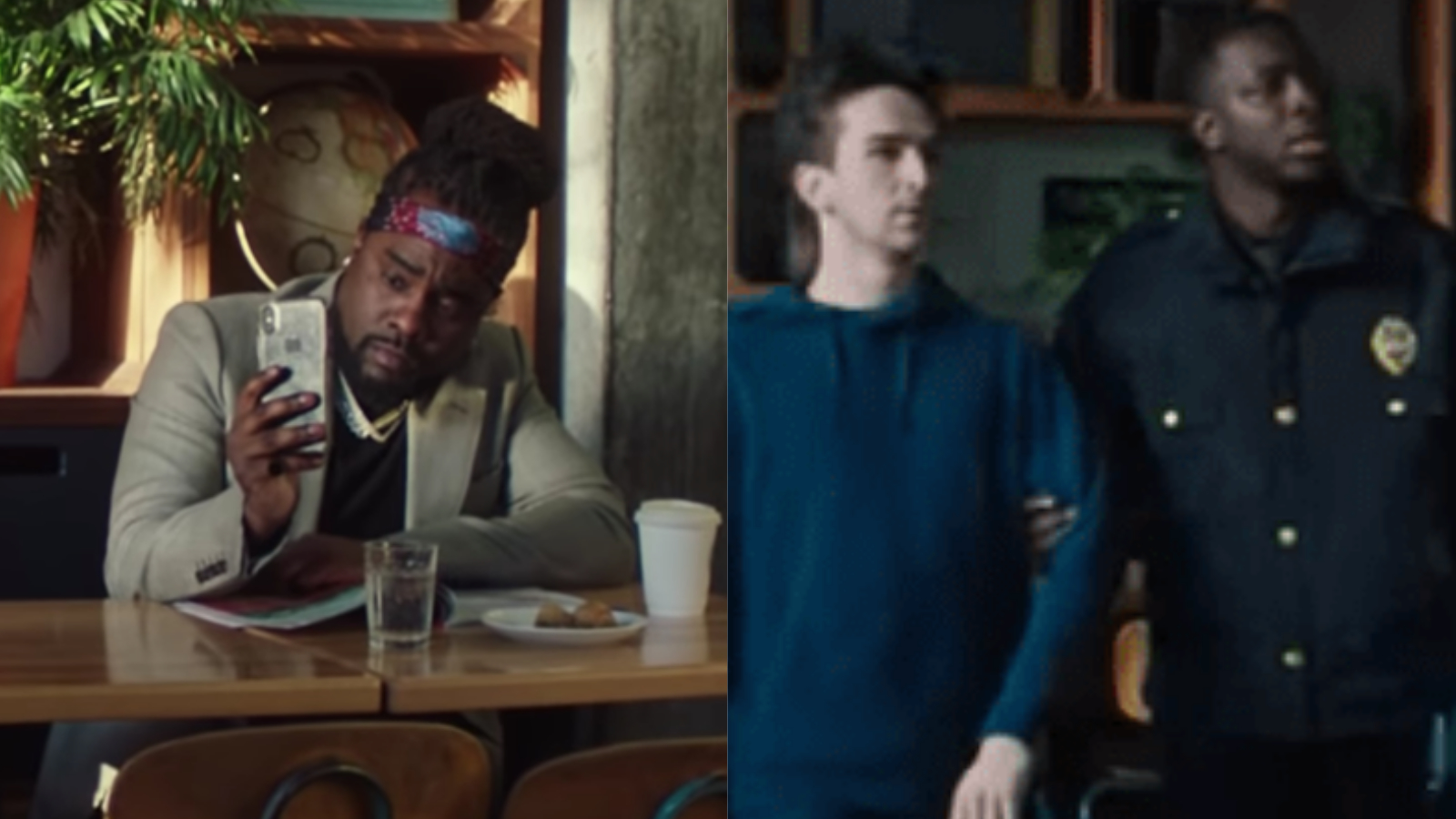After a strong return with his album Wow… That’s Crazy that dropped in October, 35-year-old rapper Wale has left many fans wondering what’s next. Wale collaborated with renowned fashion designer Kerby Jean-Raymond for the music video, which doubles as a short film, of one of the album's most compelling tracks.
On Wednesday, Wale posted the new visual for the pro-Black anthem “Sue Me." The rapper connects with a bevy of talented creatives like celebrated vocalist Kelly Price, Manchester by the Sea actor Lucas Hedges and Jean-Raymond, founder of the Pyer Moss brand whose “Stop Calling 911 on the Culture” shirt became a viral sensation in 2018.
Jean-Raymond served as the video's director. The eight-minute work makes a powerful statement on race in America by reversing the roles of white and Black Americans.
In the video's beginning, we see alternate versions of popular culture and consumer products: Quaker Oats adapted into Melanin Oats, news articles that ask “are we ready for a white president” and paintings of typically white religious figures depicted as Black people.
But as the short film progresses, so does the depth of its message.
In the first thematic shift of the video, we see Hedges’ character leave what appears to be a housing project and billboards that would typically attempt to cater to Black audiences. He then enters a coffee shop, Morebucks, as part of his morning routine. As he’s ordering coffee, Black police officers enter the establishment and proceed to apprehend two white customers at the behest of the barista at the cash register. This interpretation is based on a very real incident that occurred at a Philadelphia Starbucks in 2018, where two Black men were arrested during their business meeting at the establishment. This section of the “Sue Me” video concludes with an audio recording of the 911 call the Starbucks employee made.
In a subsequent scene, Hedges’ character exits to make room for Wale, who passes a flurry of Black men in business suits heading into the subway station. The video's star is then seen visiting his father in prison. Despite the protagonist explaining to his incarcerated kin that there is proposed legislation that may help him get out of jail, the father tells him that those services aren’t meant for him and that “there’s no hope for people that look like us.” His father then tells him they should simply move forward with their game of chess.
The film then shifts to footage of an incarcerated man talking about the Cares Act and documenting the treatment inmates are receiving at a penal institution.
There has been concern among criminal justice reform advocates about the heightened risk of incarcerated individuals contracting COVID-19 due to overcrowding and a lack of cleanliness in prisons, as Blavity previously reported.
Under the Cares Act, federal prisoners are eligible for home confinement if officials declare an emergency. However, the process for garnering eligibility can be convoluted, as the man states in the last 30 seconds of the video.
“The Cares Act is for people who are not a gang member, not a sexual offender, and is not on death row. If you at risk of catching this s**t and dying — like three people I know who have died — then they can send you home on home confinement, right?” he said. “So I go to talk to these motherf**kers to get on home confinement, and they not going to let me on home confinement. Why? Because they gotta make money off us.”
According to a report from Politico, Attorney General Bill Barr ordered federal prison officials during the first week of April to expedite the release of inmates at prisons in Danbury, Connecticut; Oakdale, Louisiana; and Elkton, Ohio, as they are struggling the most to contain major outbreaks of the coronavirus.
Poor health conditions, obsolete medical equipment and cramped spaces are all contributing factors to the dangers the virus presents to prisons and jails nationwide. The Guardian reported that scientists expect 100,000 additional coronavirus deaths stemming from penal institutions — doubling the national toll — if stronger preventative measures aren’t enacted.
